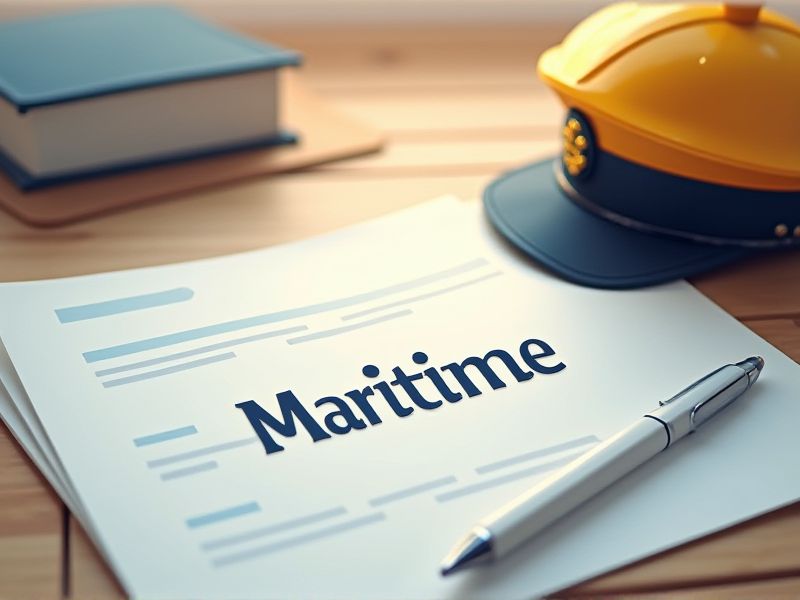
The role of a maritime pilot involves guiding massive vessels through treacherous waters, which requires a high level of proficiency and expertise. Certifications ensure that pilots possess the necessary skills and knowledge to manage the complexities of navigation and safety regulations. These qualifications are vital to minimize the risk of accidents and ensure smooth transit through critical waterways. Key certifications are essential for anyone pursuing a career as a maritime pilot.
Maritime Pilotage Certification
Maritime Pilotage Certification ensures that pilots possess the necessary skills and knowledge to navigate challenging waterways, reducing the risk of maritime accidents. By certifying pilots, shipping companies and ports mitigate legal liabilities associated with navigational errors. This certification process maintains high standards of competence and safety, fostering confidence among stakeholders in the maritime industry. Certified pilots help to ensure efficient vessel movements, minimizing delays and optimizing port operations.
STCW Basic Safety Training Certification
STCW Basic Safety Training Certification is necessary for maritime pilots to ensure they have foundational safety skills essential for high-pressure marine environments. These certifications ensure pilots can efficiently address emergency situations, potentially reducing accidents and saving lives. The training acts as a standard measure that aligns pilots with international maritime safety regulations. Without this certification, maritime pilots may lack credibility or face restrictions in certain jurisdictions.
Advanced Bridge Resource Management Certification
Maritime pilots require Advanced Bridge Resource Management Certification to enhance their situational awareness and decision-making efficiency, as it addresses the complexities of modern vessel operations. This certification instills effective communication strategies crucial for the bridge team to handle emergencies and avert potential hazards. Compliance with international regulations necessitates that pilots possess advanced resource management skills to maintain safety and operational standards. Emphasizing teamwork and leadership, this certification ensures a cohesive and coordinated approach in high-pressure maritime environments.
Vessel Traffic Service (VTS) Operations Certification
Maritime pilots play a crucial role in ensuring the safe navigation of vessels, and VTS Operations Certification equips them with essential knowledge of traffic management. This certification allows pilots to effectively communicate and collaborate with VTS operators, enhancing the overall safety and efficiency of port operations. By understanding VTS protocols and technologies, pilots can accurately assess and respond to potential navigational hazards. Without this certification, the likelihood of collision or accidents in congested waters increases, posing a greater risk to maritime safety and environmental sustainability.
GMDSS (Global Maritime Distress and Safety System) Certification
GMDSS Certification ensures maritime pilots are equipped to handle communication and coordination during distress situations at sea. This certification enables pilots to effectively use technology for sending distress alerts and receiving critical safety information. Without GMDSS knowledge, safety protocols during emergencies could be compromised. Mariners rely on certified professionals to ensure operational safety and regulatory compliance.
Advanced Ship Handling and Maneuvering Certification
Advanced Ship Handling and Maneuvering Certification equips maritime pilots with the technical skills required to safely navigate increasingly large and complex vessels. It enhances the understanding of dynamic maritime environments, reducing the risk of accidents and collisions. This certification strengthens a pilot's ability to make critical, real-time decisions in varied water conditions and traffic. Implementing standardized training and certification ensures a consistent safety standard across global shipping routes, ultimately protecting crew, cargo, and marine ecosystems.
Collision Regulations (COLREGS) Proficiency Certification
Collision Regulations (COLREGS) Proficiency Certification ensures maritime pilots thoroughly understand international navigation rules, enhancing decision-making in complex sea environments. This certification helps reduce the occurrence of maritime accidents by ensuring pilots can effectively manage vessel movements and interactions. Proper training under COLREGS standards keeps pilots updated on changes in maritime laws, thus aligning their navigation strategies with global standards. Certification demonstrates a pilot's commitment to maintaining a high standard of safety, fostering trust among shipping companies and stakeholders.
Maritime Security Awareness (ISPS Code) Certification
Maritime pilots require Maritime Security Awareness (ISPS Code) Certification because it ensures they understand necessary procedures to mitigate security threats at sea. The certification provides detailed knowledge of the International Ship and Port Facility Security Code, enabling pilots to recognize and respond effectively to potential security incidents. Pilots play a crucial role in port operations, so heightened awareness helps prevent unauthorized access and illegal activities. The presence of certified pilots enhances port security by reinforcing compliance standards, aligning operations with international maritime law.
Environmental Awareness and Pollution Prevention Certification
Environmental Awareness and Pollution Prevention Certification ensures maritime pilots are equipped with knowledge to minimize ecological damage, as their role directly influences vessel operations in sensitive ecosystems. Stricter regulations and growing environmental concerns necessitate trained individuals who can effectively manage and mitigate risks associated with maritime pollution. Certification fosters a culture of responsibility and compliance, reducing the potential for accidental spills and emissions. Improved awareness among pilots leads to more sustainable practices, aligning the maritime industry with global environmental goals.
Shipboard Familiarization and Emergency Response Certification
Shipboard Familiarization and Emergency Response Certification equips maritime pilots with essential knowledge of vessel operations and safety protocols, crucial for effective navigation and communication on board. This certification ensures that pilots can swiftly respond to emergencies, safeguarding both crew and cargo during unforeseen situations. Familiarity with different ship systems and emergency procedures minimizes errors and enhances operational efficiency. Regulations mandate this certification to maintain high safety standards and reduce maritime accidents.
Summary
When you pursue certifications as a maritime pilot, your proficiency and credibility increase significantly. Shipping companies often prioritize hiring certified pilots due to their proven skills. This can lead to enhanced job security and potentially higher salaries. Certifications also ensure adherence to safety standards, reducing accidents and operational risks.
